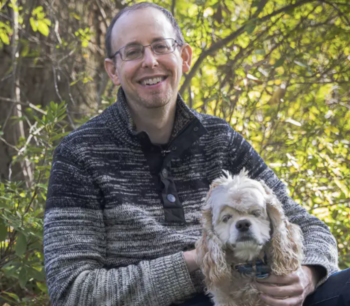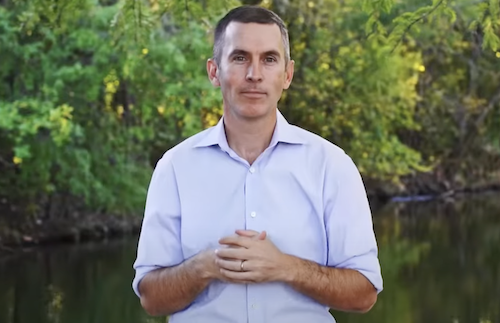With 2024 being a presidential election year—maybe a rerun of the 2020 election between Joe Biden and Donald Trump—we should be expecting record-breaking turnout in Austin voting.
Add to that, for the first time in Austin’s history, the mayor’s race will be on the same ballot as the presidential contest.
Candidates running for the five council seats on that November 2024 ballot will need to work extra hard to get the attention and support of local voters who will be constantly bombarded on all media platforms by deep-pocketed candidates seeking higher office.
As of January 31, 2023, there were 70,666 qualified voters in District 10, according to information supplied by a city spokesperson. In the general election of November 3, 2020, when the District 10 council seat was last contested, seven candidates drew a combined total of 49,372 votes. For the runoff of December 15, 2020, 24,304 votes were recorded, with incumbent Alison Alter defeating Jennifer Virden with 51.35 percent.
A Council District Demographic Profile published by the Planning Department indicates District 10’s population in the 2020 census, updated in 2021 by the American Community Survey, was 98,455. The median age was 38.8.
Fourteen percent were immigrants, the same percentage as for age 65 and older. Nineteen percent were under the age of 18.
They lived in 45,979 households with a median income of $102,303. That makes District 10 the second most affluent, behind District 8’s median household income of $118,336.
Ninety-nine percent had high school diplomas and 76 percent had a bachelor’s degree or higher education.
Early District 10 entrants
Marc Duchen (no middle name) is 45 years of age and has a long history of involvement in the issues that face the Austin City Council.
Asked why he’s running for City Council, Duchen said the council will have a “big hole in District 10” when it loses Alison Alter’s experience.
For nine years he’s been on the Stillhouse Hollow Condominium Owners Association, which consists of 180 units surrounded on three sides by greenbelts. He is currently its president and helps oversee an annual budget he says is $750,000.
He is a board member of Community Not Commodity, a group in the forefront of fights against the City Council’s plan to eliminate single-family neighborhoods. The group organized against CodeNEXT in 2017 and recently provided a system for filing protests to protect homes and neighborhoods. That effort resulted in some 16,000 protests being filed against the HOME initiative, which the council nevertheless approved 9-2 December 7th.
Duchen is also vice president of programming for the Austin Neighborhoods Council and for five years he has been a member of ANC’s executive committee. “We need a smart, pragmatic person to ask questions and be a balanced advocate for neighborhoods and capable of understanding city’s finances, where we’re spending, and what we can afford,” he said.
“The public has been largely shut out of policies and we’re worse off for it. We need to bring in someone that favors an inclusive process and has the courage to acknowledge when things aren’t working. Someone with creativity to find new and data-informed solutions.
He was encouraged by the Zilker Rewilding outcome that prevented Zilker Park from being turned into a commercial venue. “I felt like that really demonstrated that we can achieve a broad-based coalition to push back against the council’s excesses. For me that’s a potential roadmap going forward.”
Duchen has been involved in politics for decades. He does business in that arena as HD Campaigns LLC. He formed the company in August 2009 with Herb Holland, according to records maintained by the Texas Secretary of State. The latest Public Information Report for the firm filed May 13, 2023, lists him as principal and director.
He first voted in a Travis County election in 2007 and has voted in only Democratic primaries.
Ashika Lekha Ganguly is 28 and sees things from a different perspective. She is a former Austin ISD school teacher.

Asked why she’s running for council, Ganguly said, “Sometimes I think every experience I’ve had has prepared me for this moment. I was born and raised in West Austin…I really saw as a teacher how everything in the city shapes our families stability, happiness and success.
“I want to take that experience I saw as a teacher and add to it my experience with policy making at the state on property taxes, voting….”
“I feel strongly about bringing a fresh face to strong leadership at the local level. (I want) to represent my community, the families I taught, in a way that stands up to state preemption and allows us to fight for equitable policies at the local level.”
Since January 1st she has been legislative director for State Representative John Bucy (D-Cedar Park).
It should be noted that although she is campaigning under her maiden name, both her state personnel file and Travis County voting record are still under her former married name, Parker.
She married Ryan Lee Parker in December 2018 and was divorced in November 30, 2022, a month before she began work on Bucy’s staff. Her divorce decree permitted a name change. She told the Bulldog, “I’m planning to change back to my maiden name in public identify. That’s the name I grew up with, was born and raised with. It also ties me to my heritage. I have not quite gotten around to it.”
She first voted in Travis County in 2014 and has voted in only Democratic primaries.
Key issues for these candidates
Ganguly said if elected she will focus on “smart spending,” by developing preventive and proactive policies that would spend money upfront to counter “reactionary policies in spending government money.”
Environmentalism and sustainability and her second priority issues. She notes that the Edwards Aquifer is “in dire straits right now” and lakes are at “the lowest levels in years.”
“A big issue for my district is wildfire prevention and protection. There’s a lot of open land. Anything from robust first response and development practices that mitigate wildfire, I’m putting my interest there.”
A ”thriving community” is her third priority, a community where you can live, work, play and be mobile in your own community. She advocates for robust urban transit, trails, sidewalks, and development that contributes to vibrancy of the community.
She said the bulldozing of the old Randall’s supermarket at Lake Austin Boulevard and Exposition and replacing it with a “new, fancy-schmancy HEB” was transformative for her neighborhood.
Duchen starts with the bigger picture, saying, “Austin faces significant challenges on most city fronts including land use, mobility, affordability, and public safety. These challenges have all been compounded by over a decade of hypergrowth, and further complicated by a series of unsuccessful or misaligned council policies.
“But it’s not just Austin. My two decades of experience in politics and engagement suggest that our entire American Democratic system of government is in trouble. Austin’s challenges may as well be ‘Exhibit A.’ ”
On the issue of mobility, Duchen cites the failure in executing plans for Project Connect, whose scope has been reduced and its cost increased. “The central challenge right now is that we have already earmarked a generation’s worth of transit dollars for a project that has both been downsized and continues to carry enormous risks—including whether it can actually solve our transit needs.” Instead, he advocates “Prioritizing busing including dedicated busing lanes, flyovers, even tunnels, that could be part of a multi-modal system that includes more bike lanes and other modes of transit that is both flexible to the public’s needs and that people would actually use.”
Duchen points to the shortage of police officers, low morale, and lengthy response times. “We need to be thoughtful, going forward, about how we invest in and support public safety and our police, including our cadet classes, and how communities and residents can partner with them to make their communities safe and reduce emergency response times.”
“We need to re-establish the connection between communities and their APD representatives. We can both hold APD accountable and support public safety initiatives. They aren’t mutually exclusive.”
Regarding homeless housing, Duchen said, “There are nonprofits in this space that have decades of experience working with the chronically homeless, such as New Hope Housing in Houston. They raise money privately and fund operations through housing tax credits. Most importantly, they have a wealth of experience building and managing facilities and working with neighbors in a way that the City of Austin and city providers do not. We can partner with these groups, incentivize them using city land or other benefits, and over time scale up a program that supports both homeless housing and low-cost housing.”
Both connected to the immigrant experience
Ganguly was born in Austin and is the daughter of immigrants who came from India for graduate studies and stayed. She said she considers herself an Asian American Pacific Islander.

She is single with no children and lives with her mixed-breed dog Rani in a condo near the Lions Municipal Golf Course (and that fancy-schmancy HEB). The dwelling is owned by her parents, who reside just outside the District 10 border in the city’s two-mile extraterritorial jurisdiction.
She attended Eanes ISD campuses at Barton Creek Elementary, West Ridge Middle School, and Westlake High School before enrolling at UT Austin in the fall 2013 semester. She graduated with a bachelor’s degree in applied learning and development December 17, 2016, and started work two days later as a school teacher at Blazier Elementary, she said. Ganguly then transferred to Matthews Elementary in Clarksville for her last four years of teaching, ending in May 2021.
Duchen was born in Johannesburg, South Africa. His family emigrated to the United States when he was 4. He became a naturalized U.S. citizen at about age 12, he said. He attended public schools in Houston.

He is single with no children and lives with his cocker spaniel, Crumpet, in a condo owned by his father, who lives in Houston.
Duchen came to Austin in 1996 to enroll at the University of Texas, the year after Ganguly was born. He graduated with a bachelor’s degree in government in 2001. In 2009, he said, he earned a master’s in business administration from the Acton School of Business in Austin.
He says he ran political campaigns across Texas in his early career and ran Betty Dunkerley’s reelection campaign in 2005. (She defeated four challengers without a runoff.) After spending the next year in Corpus Christi running a successful state house race, he returned to Austin to work for the Texas Progress Council and served as research director for the Texas Democratic Party, he said.
After graduate school he did more political consulting, he said, before transitioning to work in a variety of technology projects.
Far different campaign styles
The City Council members who won open seats in the 2022 election spent from around $150,000 to a bit more than $200,000, according to the Bulldog’s analysis. How much will these two spend?
Duchen said “From the git-go I need at least $100,000. To get to $150,000 to $200,000 by next November seems doable. There’s no way I would have jumped in if I didn’t think so.”
“The takeaway (from the 2022 election) was not money, but who did what…I’m going to have to go work really hard and knock on doors myself…I plan to knock on 50,000 doors over the next 11 months, which would mean that some people will get more than one knock.”
Duchen said he will not be aided by the tool that Democrats often use as a guide for which doors to knock, the NGP VAN (Voter Access Network). “I feel like its outdated and not the best data. I have my own database,” he said, “that’s part of what I do professionally. But I’ll probably enlist Leland’s targeting advice,” he added, referring to Leland Beatty. “Leland is brilliant and probably knows more about campaign data and specifically Austin data than anyone I know.”
Duchen has a “coming soon” placeholder for a campaign website, marcforaustin.com, but no campaign manager and no plans to hire one till next summer. “The logic is to keep overhead as low as possible,” he told the Bulldog.
Duchen initially said in an interview that he would be using Mark Nathan of the City Lights Group as a campaign consultant.But on December 18th he emailed the Bulldog to say that Nathan “has another commitment and as a result will not be able to formally help my campaign next year.”
Ganguly posted a video to Facebook November 18th saying she had raised $15,000 in the first week of her campaign. Later she held another fundraiser at her parent’s home. “I’m thinking in terms of increments,” she told the Bulldog. “I plan to raise $30,000 to $40,000 by January and will have good momentum, and will be close to $200,000 by end of it.”
She is active on X (formerly Twitter) and Instagram. And her campaign website (dominated in bright orange reminiscent of UT’s burnt orange) provides a long list of supporters, both elected officials, community leaders, and others.
“I made the decision to run at the beginning of June, talking to community leaders, friends, and neighbors every day to get the campaign off the ground. The response has been overwhelming and positive. I’m so grateful to have people work with me for a better Austin.”
Ganguly said she will “likely use the VAN” to guide her efforts in knocking on doors. “I’m still looking through the voter data, especially after redistricting. I want to be intentional with our outreach and meeting voters who are new to District 10. But we plan to engage voters in every precinct throughout the campaign in order to effectively represent every precinct on the dais.”
Ganguly’s campaign manager is Kyle Burke, who, like her, is an aide for State Representative Bucy. She has no campaign consultant but told the Bulldog she has “some folks helping me” and has “sat down with a number of people involved in Austin politics to pick brains and think about a path to victory.”
She said that Burke has worked on campaigns including Mike Collier for lieutenant governor in 2018, Jay Kleburg for land commissioner in 2022, and for Vanessa Fuentes in her 2020 election to win a seat on the City Council. Fuentes’s campaign finance report posted in January 2021 shows that she paid Burke $500 for contract labor in that entire campaign.
Differences in personal health
Ganguly said when she was a teacher, “I don’t think I ever had a free moment.” Since then she’s found time for a number of activities, including involvement in Indian-American community events. She said she volunteers with Keep Austin Beautiful and for Shoal Creek cleanups, and enjoys happy hours and social activities, including exercising with two groups.
She said she works out with Trinity Training Company, which offers a variety of experiences. She also trains with Relay, which on its Instragram page appears to have a large member base that engages in a variety of strenuous physical exercises.
Cruise through her Instagram photos and you’ll quickly see that Ganguly is super fit.
Duchen has had a far different life experience. He is a cancer survivor. “I’m five years cancer-free, which is the point that the odds of a recurrence plummet.”
In this council campaign he is following in the footsteps of many public officials who have been open about chronic health challenges, among them New York Mayor Eric Adams, who has diabetes; Pennsylvania Senator John Fetterman, who suffered from depression following a stroke; and closer to home, Council Member Natasha Harper-Madison, who recently returned from a couple of months off for a mental health break.
“This year has been extremely challenging for me,” Harper-Madison told the Austin American-Statesman last month. “I live with depression and anxiety. Thankfully these issues can be treated with focused care.”
Duchen said, “Far more so than cancer, my life changed as a high school freshman when I woke up one day and could not move—or barely breathe. It took nearly four years to receive a diagnosis: an unusual and little-known auto-immune illness called ‘Ankylosing Spondylitis.’ AS is a form of rheumatoid arthritis and is degenerative. If left untreated, it can cause spinal fusion on top of chronic pain and fatigue. I’m deeply grateful to western medicine which has allowed me to work, start a business, and contribute to my community.
“I have overcome many obstacles to get to where I am and my philosophy has always been to do what I can, with what I have, while I am able. I am inspired to run for City Council because I have a chronic illness—not in spite of it.”
“The chronic illness never goes away and requires daily attention: I take medication at 5am and 5pm every day so that I can do things that most of us do without thinking, like walk or breathe. On the other hand, I have some insight into how some 50 million other Americans with chronic illnesses live, insight into the opioid epidemic, and insight into healthcare access issues that others might not necessarily have.
“I think there is lived experience and perspective I could bring to Council that could be valuable in dealing with certain issues or understanding and serving a diverse community.”
What Duchen’s supporters say
Duchen has upwards of 50 supporters to be listed on his campaign website, which has not yet been launched, but adds that he’s done a lot of work for Democrats over the years and is confident “folks will come out.” He’s counting on strong grassroots support.

Among those on board are his campaign treasurer, Linda Bailey, who said she’s known him for six or seven years. “I know him to be balanced, professional, and data-driven.
“He’s not a reactionary and that’s important to me. I like his policy. I’ve seen him have good reasons to improve the HOME initiative. He works with coalitions very well.
“We need an adult in the room on city council,” Bailey said.

Cecilia Burke has also known Duchen for quite a few years, including when they were fighting a planned unit development in the area.
“Marc is thoughtful and deliberative,” Burke said. “We fight over land issues all the time but there’s more than that. The city has grown fast. The roads, bus system, and transportation are not good.
“I don’t think of Marc as a NIMBY. He’s smart, will do his research and make good decisions for the people of Austin,” Burke said.

Jennifer Mushtaler was herself a City Council candidate. She ran against incumbent District 6 Council Member Jimmy Flannigan in 2020, placing third in the general election, while Mackenzie Kelly went on to beat Flannigan in the runoff. She is currently serving her second term on the Planning Commission as Kelly’s appointee.
She said she got to know Duchen when she was running for council. “I really like him. He’s very thoughtful. He asks the tough questions and digs in and gives matters careful thought. He doesn’t react emotionally, he reacts thoughtfully.”
After redistricting resulting from the 2020 census, Mushtaler is now in District 10 herself. She said she admires incumbent Council Member Alison Alter and says finding the right person to succeed her is important. Mushtaler opposed the HOME initiative the council approved December 7th, with Council Members Kelly and Alison Alter opposed.
“I admire Alison’s service. She asked hard questions. That’s an important element on the dais that needs to be there. I think Marc will ask hard questions. That’s good for us, the district, and the city.”
She added, “Marc works very well with both sides of the aisle. He’s aligned with the Democratic Party but reaches across. District 10 is very purple and that should be very appealing.”

Heidi Gibbons is also a strong Duchen supporter. “I want someone who has a stake in this community, not someone paid off by developers,” she said. “I was with the group that interviewed Alison Alter when she was first asked to run for council. Because of her involvement with the Parks Board I knew she had the smarts and the passion.
“I’m looking for someone with smarts and a passion for Austin. I want someone who has worked in the city and can get things done.”
What Ganguly’s supporters say

State Representative Bucy, Ganguly’s boss at the State Capitol, was enthusiastic about the work she did during 2023’s regular legislative session and four—count ‘em four—special sessions called by Governor Greg Abbott.
He said that he serves on the Higher Education Committee and Ganguly played a “vital role to help me and in constituent services and worked on many education bills. We had a huge win staving off vouchers.”
“Ashika has been incredibly important,” he said, noting that she “has real-world classroom experience. She was born and raised in that district. She cares about kids and their futures.”

Manuel “Manny” Gonzalez, PhD, is regional director of the nonprofit Western Governors University. He also serves as secretary for the Austin Community College’s Board of Trustees.
He told the Bulldog he worked closely with both Bucy and Ganguly on developing policies to provide greater access to higher education, including opportunities for financial incentives for adult learners. “She was excellent collaborator,” he said.
“Ashika asks questions and solves problems with ideas to address these issues. I highly value her inquisitive and thoughtful approach. I have to give her credit for passionate, creative public service.
“Austin needa a lot of voices at the table to be sure it stays a special city,” Gonzalez said. “As a former school teacher, she has focused on education but it’s not the only thing. She has talked about housing affordability issues and how to ensure everybody has lots of opportunity to find success.”

Andera Chevalier is director of governmental relations for an organization involved in special education. She was careful to say that she is expressing her personal opinions and she does not speak for the organization.
Concerning Ganguly, Chevalier said, “She really surprised me in the legislative session when I saw her interacting with stakeholders, the way she listens really deeply and takes all viewpoints into account.
“She’s really strong. When she believes in something she really speaks out and fights for it. She comes across as being more reserved or quiet because she’s listening but when she speaks out it’s because she really believes in what she’s fighting for, which is helping people.
“I really like her because she’s a former teacher and I know she’s been exposed to different family situations and knows there’s lot of diversity and how that impacts families and that’s really important.”
Ganguly provided the names of two other people who are listed as supporters, former State Representative Eddie Rodriguez and Leander ISD Trustee Anna Smith. Neither returned multiple calls for comment.
It’s a long way till November 5, 2024
The Bulldog tracks when candidates appoint campaign treasurers. That’s when they can start soliciting and accepting campaign donations. It’s also when we begin gathering information that will guide our reporting about the candidates.
The Austin City Clerk’s webpage states the 2024 Candidate Package will be released May 2, 2024.
The first day to file for a place on the ballot is July 22, 2024, and the deadline is August 19th.
The Bulldog will continue working through election year 2024 and doing our best to provide deep-dive coverage of the candidates and their campaigns.
This article was updated 9:48am December 15, 2023, to correct a person’s name: It’s Leland Beatty (not Bailey).
This article was updated 2:39pm December 19, 2023, to clarify that Mark Nathan will not be formally helping Duchen’s campaign.
This article was updated 10:02am December 21, 2023, to remove the remark about Ganguly’s appearance.
 Trust indicators: Ken Martin’s first big political story about an Austin election was published by (the now defunct) Third Coast magazine in January 1982. The story covered the petition campaign led by the anti-gay group Austin Citizens for Decency that put an ordinance on the ballot of January 16, 1982: “Providing that it shall not be unlawful to deny housing on the basis of sexual orientation.” That election drew 57,236 voters to the polls. Sixty-three percent voted to defeat the ordinance.
Trust indicators: Ken Martin’s first big political story about an Austin election was published by (the now defunct) Third Coast magazine in January 1982. The story covered the petition campaign led by the anti-gay group Austin Citizens for Decency that put an ordinance on the ballot of January 16, 1982: “Providing that it shall not be unlawful to deny housing on the basis of sexual orientation.” That election drew 57,236 voters to the polls. Sixty-three percent voted to defeat the ordinance.
If you appreciate getting this kind of in-depth coverage of candicates, you can show your support for this work by making a tax-deductible donation. Because the Bulldog is now participating in the national NewsMatch fundraising campaign, all donations will be matched dollar-for-dollar through the end of this month.
Related documents:
Ashika Ganguly degrees and dates of attendance at UT Austin (1 page)
Ashika Ganguly (Ashika Parker) personnel file for her employment by State Representative John Bucy (19 pages)
Ashika Ganguly records of her Wedding of December 28, 2018 and Divorce of November 30, 2022 (3 pages)
Demographic Profile for City Council District 10 (3 pages)
LinkedIn page for Kyle Burke, policy and operations specialist for State Representative John Bucy (1 page)
Mark Duchen campaign treasurer appointment, November 13, 2013 (2 pages)
Mark Duchen degree and dates of attendance at UT Austin (1 page)
Marc Duchen Secretary of State records for HD Campaigns LLC formation and latest Public Information Report, May 13, 2023
Marc Duchen Voter Lookup record, showing he registered to vote September 23, 2007 (2 pages)
Travis Central Appraisal District records for the condo residence of Ashika Ganguly (2 pages)
Travis Central Appraisal District records for the condo residence of Marc Duchen (2 pages)
Travis County Tax Office records for the condo residence of Ashika Ganguly (1 page)
Travis County Tax Office records for the condo residence of Marc Duchen (1 page)
Related Bulldog coverage:
Siegel running for City Council District 7, October 31, 2023







 Trust indicators: Ken Martin has been covering local government and politics in the Austin area since 1981. See more about Ken on the
Trust indicators: Ken Martin has been covering local government and politics in the Austin area since 1981. See more about Ken on the 

 Trust indicators: Ken Martin has been covering local government and politics in the Austin area since 1981. See more about Ken on the
Trust indicators: Ken Martin has been covering local government and politics in the Austin area since 1981. See more about Ken on the 












 Trust indicators: Ken Martin has been covering local government and politics in the Austin area since 1981. See more on Ken on the
Trust indicators: Ken Martin has been covering local government and politics in the Austin area since 1981. See more on Ken on the 




